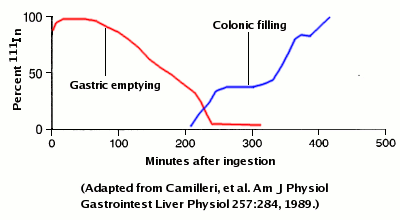exercise burn carbs like it does calories?
Options

Wakey618
Posts: 160 Member
Just wondering if exercising affects the amount of carbs we can take in in a day? If we're burning calories during exercise wouldn't we logically be burning other macros?
0
Replies
-
Some people will use carbs before exercise or use exercise to burn off eaten carbs. It's a method you'd want to try out for yourself, but if you want to incorporate more carbs and use exercise to offset them, I think it has to be done right away. It doesn't work if you eat higher carbs in the morning and workout at night....0
-
Yes, exercising burns carbs. Carbs are generally your first source of fuel when exercising.
But the idea of LCHF is your body will switch from primarily burning carbs as energy to burning fat as energy. The fat as fuel is a slower burn - more consistent without the tendency to dip and rise quickly like carb burning.
So to exercise just so you can consume more carbs seems kind of counterintuitive. And it can also bring about a cycle that can get vicious for some.0 -
Thanks. I just want to be sure I'm not ending up too low on carbs when I get in some really good workouts. I never saw the logic in people exercising just so they could eat more!0
-
It depends on both your level of exertion and your level of "fat adaptation." At the highest levels of exertion (e.g., 90%+ HRmax), you'll burn mostly glucose.0
-
Thanks. I just want to be sure I'm not ending up too low on carbs when I get in some really good workouts. I never saw the logic in people exercising just so they could eat more!
There's actually no such thing as too low in carbs. Your body doesn't actually need any at all. It can make the little bit of glucose that it requires each day on its own.
Now, you might have a preference for an amount that feels best... But that's just an individual thing.0 -
"Calories" is not a macro. Macros are fat, protein, and carbs. You use calories when you exercise. One way or another, those calories come from whatever macro you are consuming.
If what you are asking is whether you can "eat back" your carbs, the way you do calories, it depends on your motivation for lowering your carb intake. Because my carbs are low to keep my blood sugar low, exercising does not let me eat more carbs - I react to an absolute number (a flat 20 grams in a 3 hours period is my limit). If your goal is to be in dietary ketosis - the carbs you eat are also relatively fixed (so no, or little, eating them back).
On the other hand, if your goal is just to eat a relatively low portion of carbs (say 10% of your calories from carbs), if you burn 500 calories - you can eat back 50 of them as carbs (giving you an extra12.5 grams of carbs)0 -

This book answers the question in detail. Because I am fully fat adapted, I can exercise on an empty stomach and I have access to thousands of calories of fuel without re-fueling. It's a great book that explains the process in detail.2 -
"Calories" is not a macro. Macros are fat, protein, and carbs. You use calories when you exercise. One way or another, those calories come from whatever macro you are consuming.
I'm sure you know this, but there's no direct correlation between intake (macros or calories) and the fuel burned by exercise.
Your muscles burn what they need, and that comes from local storage within the muscle. If that gets depleted, it either gets refilled or your muscle gets exhausted. The refilling can happen hours after exercise, and it's less a function of what you ate than which stores you depleted.
Intake can also be buffered for many hours in the intestines.
When you're low carb, you're depleting secondary storage for glucose: liver glycogen. A higher-carb meal will refill liver glycogen, but it could take hours. Exercise will speed up the depletion of that refilled glycogen if you deplete muscle glycogen, but that can also take hours.
I did a quick google to find a timeline for a mixed meal, but didn't find anything great. This gives a general idea: 0
0 -
Thanks - some really good info here!0
This discussion has been closed.




